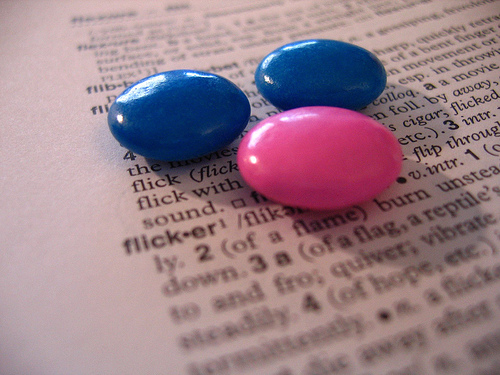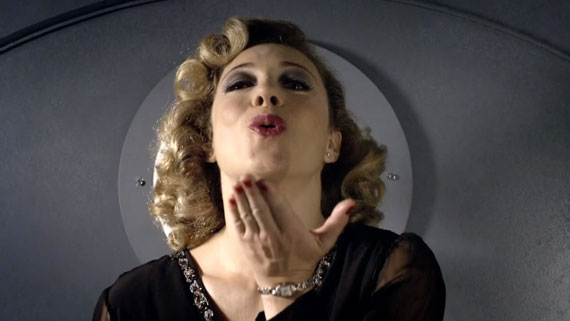3 Things You Must Have in Your Novel’s First Paragraph
I gave you my spiel last time on plotting and planning your novel in advance. I promise not to smack you over the head too often with that. I realize we are all creative agents and need room to be ourselves and express ourselves in our own personal manner.
Enough said. But we’re looking at elements needed in your first scene, and so I’m hoping you will try to do a little pre-work or rework as we delve more into these essential first scene elements.
The First Paragraph
That first paragraph is probably going to be the hardest one to write and polish since it carries the biggest burden in your novel (and the last paragraph in the book carries the second biggest burden). It’s fine to just throw something out there to get started, knowing you’ll come back and make it much better. But before you can write that first paragraph, you should know what your first scene is going to be about—and it has to be about some specific things:
- Your protagonist. Unless you are writing a prologue (if you really must) that involves some other characters, you want that first scene to showcase your protagonist. Why? Because you are clueing your reader and telling her to pay attention to this particular character right from the start. Your reader will assume the first character they are introduced to, with the scene being told in their POV (point of view), is your protagonist and the one they will want to root for. There are exceptions to this, of course, but as a general rule, this is the time-tested and best way to start.
- A catalyst or incident. Your opening scene should start off with a bang, with your protagonist in the middle of something that we sense has been going on for a while. Insinuate a conflict, a problem, some tense situation that puts the protagonist right in the heart of a scene that will be the perfect milieu to showcase her humanity, needs, fears, dreams, or whatever it is you want to reveal about her to the reader at the start. This incident or situation should provide a great platform for your MDQ and plot goal (if you don’t know what I’m talking about, go read the previous posts that go into detail on this). This is why you need to spend some serious time thinking about the setting, locale, and situation of your first scene.
- A hint of the protagonist’s core need. I’ll talk about this more in future posts, but this is essential. Basically, you want to introduce a character who has a visible goal (as we’ve gone over)—but what does that translate to? That she has a need. Hence, the reason she has a goal. If Indiana Jones’s goal is to get the Ark of the Covenant, it’s because he has a need. Now, in a different story, his need may be to get enough money to pay the rent and what is motivating him is his desire not to be homeless, so he’s driven by a need to survive by going after a reward. Or his need could be for fame, for humanitarian purposes, to impress a girl—the list is endless. It’s your story, so you should know why your protagonist wants to reach that visible goal. So hint at what that is.
Now, I’m not suggesting you need to write a three-page first paragraph to get all this in there. In fact, that first paragraph may tell us very little and just give us a great hook and introduce your character in some compelling situation (at very least you need that). But you do need all this on your first page—at least a hint of this. It’s doable—really! And essential to the heart of your story.












Great blog entry. Loved the idea of the protagonists ‘core need’. This is a new slant for me.
I’ll be going much more into the core need in later posts so be sure to subscribe and you’ll learn some neat new ways of looking at character development.
I quit taking college English classes because all my professors would do was draw red lines on my great stories.
I just started writing again 25 years later, and wished I had just found an editor and not quit writing.
Are there any resources for me to find an editor, whether professional or not that won’t cost me a lot of money?
Thanks, I just started writing 5 days ago, and this is so much easier than computer programming, Word always compiles.
I type so fast that writing is the perfect career for me as I have 15,000 words already thanks to a long thanksgiving weekend.
I would even be willing to website or software development for writing advice / editing.
Thanks if you know of any resources that would help me.
This article might help you: http://janefriedman.com/2012/01/30/4-ways-to-find-the-right-freelance-editor/
Lots of resources out there!
Great advice, however..
“Your opening scene should start off with a bang” – I disagree here, but slightly. “In medias res” is the norm in modern storytelling, but this advice is taken literally too often — a car chase, life-or-death situation, a heated fight.
Though exciting, because the readers are just meeting the character they don’t have enough time/investment to care or understand the importance of the conflict (though we, the author, *of course* know all the emotional baggage).
So rather than starting with a bang, start with an already lit fuse and pan over to the waiting powder keg.
Everything else is spot-on, IMO
Yes, I agree with you there. People tend to take this sort of advice as set-in-stone, and sometimes a book calls for a different approach. For example, one of the many surprises will be the reader finding out who the main character really is. My plan is to introduce the main character as “the serial killer” and nothing more, then when I return to him in a later chapter, describe him in such a way that, when the reader is told that he IS the killer, they’ll have a hard time believing it.
If I followed standard procedure for the first paragraph, it would give away the surprise before you even knew there was one haha
Thanks. I just checked my WIP and I don’t know how I did it, but it’s all there in the first paragraph. Thanks for confirming that and for your posts which are really helpful
Your advice is sound and on the money. However, for my latest work, I am considering coming at it from a slightly different angel; that of the antagonist. I’ll need to play with it a bit to see whether it will work.
I wasn’t aware the first paragraph required the protagonist’s motivation/need! I plan to go through my manuscripts and possibly revise them. Great advice, thanks! Keep it coming!
Definitely gave me something to think about. The motivation part was the clincher for me, but I have a question. Does motivation need to be in full effect if it is a short story or piece of flash fiction?
Well, my opinion here, and I love and admire great short stories: I think the character motivation and core need and deepest fear, etc., has to be even more immediate and prominent in a short story because you don’t have the luxury of hundreds of pages to build and reveal those. If you look at stories by Ray Carver, Alice Munroe, and especially Flannery O’Connor, those things seem to ooze out right away. maybe not is clear, obvious ways, but you sense right away something is up. At least, those are the kinds of stories I love. You want microtension right away so giving any hint of trouble under the surface is good.
Chanced on your post and was inspired to revisit the first page of the novel I’m working on. Rejigged paragraphs and tweaked it as per your suggestions and it was instantly stronger. Will need to do further work but wanted to thank you.
Thanks, Toni. You may want to look at all the posts starting the first week of January (just click on the right on the Home page on “Writing the Heart of Your Story” category). I’ve been covering a lot of great things, and the first five months is all on just the first scene.
I don’t often disagree with writing advice from other professionals, but I’m going to disagree here with saying that the protag’s “core need” must be established in the first paragraph (or in the opening) of a novel. For every good/great novel, you can mention, I can give you at least two exceptions to that principle. At the very least the reader should get to know the protag before you put his or her core need out there. The protag may not even KNOW his core need in the beginning. Certainly, in detective novels, we likely haven’t even met the main character or seen the crime, let alone know his need to solve it.
I’ve been doing a series of blogs on Openings on my “Write Well, Write To Sell” blog lately (www.writewell.silverpen.org). I give an extensive number of novel openings (a number are classics), and maybe half of them have the core need in the opening. Some of them don’t even have the protag in the opening. My premise that a good opening should present character, setting, and conflict (not necessarily the MAIN conflict) as part of the hook.
I honestly believe while SOME stories introduce the core need that early, it’s simply not appropriate for all. I’d venture to say that it’s used (or is needed) in fewer than half of the good novels out there. Conflict, yes. But presenting the protag’s core need is not essential to a good opening, and may in some cases be detrimental to the story if a writers tries to force it where it doesn’t belong. Great examples: DaVinci Code, Harry Potter, Twilight. The first two don’t even start by introducing the protag).
I also agree with Matt’s comment on exercising caution with regard to opening with a bang. Again, not all novels can or should start with a tense situation (and a lot of great ones don’t). An often better way, instead of in medias res, is to show the protagonist’s current situation, before the inciting incident that propels him or her down the path of story.
So, while, I don’t disagree with your premise about a first paragraph, claiming that ALL novels all have these in that first paragraph (or even on the first page, risks leading some new writers in particular down a possible rocky path. At best, its a good general guideline to consider for a lot of novels. There simply is no one-size-fits-all rule for openings.
Just my opinion, of course.
–Rick
Great thoughts. Of course, so many best sellers do not follow this and it’s just amazing how well they sell. The three books you mentioned are great examples to me of terribly written books that somehow gained a huge audience, whether due to hype, luck, or just appealing to the masses that have “questionable” taste. That is my snobbiness coming out, for sure. Now that I’ve made enemies of every Harry Potter fan out there (sorry, I tried a few times to read twenty or so pages but gagged), I will totally admit I’m teaching my way of writing, and of course, every writing teacher has their methods and beliefs and all that. For those who want to try my way, I feel they will get to the heart of their story and write a story with heart. It’s not for every genre or for every writer. And I’m not teaching to those writing strictly genre, for, of course (and I write suspense/crime/mysteries too), in genre mysteries often the whole first scene is setting up the dead body or the killer killing his first victim or what have you. But my slant is that when you do write that first scene with the protagnist, that first paragraph should really bring in those elements. And if not in the first paragraph then shortly afterward. I’m fine if many disagree, but don’t knock it until you’ve tried it (and gotten reader response on it).
You’re opening a new can of worms, here. I do think your writing advice is generally wise, but I think your assessment of questionable taste is unfair. What constitutes a “good book”? Is it a book that follows a formula? Is it a book millions couldn’t put down? I wouldn’t have made it through two pages of “Twilight” if I hadn’t read it for my book club. But thousands of teenaged girls put down their cell phones and got lost in that book. Maybe I would’ve, too, when I was thirteen. Doesn’t that make it a “good” book? When judging a book, public opinion means more, in my opinion, than adherence to writing rules. Literary “taste” is a luxury that results in dusty book covers.
I did admit that was just my personal taste. And the disturbing high rise in suicide in teen girls who were enamored with the Twilight series begs the question as to whether just reading any book is a good thing. But that gets into a whole side discussion. But, no, I will again give my personal opinion (which you are free to disagree with) that just having millions of people reading a book does not make it a “good” book. It makes it a popular, money-making book–yes. But I think a lot of authors, like me, do not equate those things with quality.
I agree with you, Susanne, about determining whether a book is “good” or simply popular. Good writing is not necessarily popular, and popular books are not necessarily good writing. I read one book by an author that I normally enjoy, but that particular book was just plain silly and had a poor story line. But I would venture to guess she has sold as many copies of that book as of her good ones. I’m only glad I had the book given to me (by someone who also didn’t think it was a good book) and that I didn’t pay out money for it. And some authors who do write good books and then become very popular begin to slacken on the quality of their writing simply because the publisher knows anything written by that person will sell regardless of quality.
Just because a thing is popular or makes enormous amounts of money doesn’t mean the thing is good, well-done or a masterpiece. And this is true of books, movies, clothing (jeggings, anyone) and food. I don’t think it is snobbish to assert that a book that is enormously popular is not necessarily a well-written book.
When I buy a book, it begins with the first paragraph. If I am engaged in that paragraph, I am taking that book out of the store with me. Not because it was popular with someone, not because it was selling well, but because it grabbed my attention and I wanted to know what happened next. I don’t think I’m an unusual reader, except to the degree that what intrigues me might not intrigue the person standing next to me surfing for books to buy, but aren’t we all that kind of unusual?
As for writing that first paragraph, it is an important challenge. Maybe you don’t see the hair color, eye color and outfit my protagonist is wearing in my first graf, but you know something about her heart, his fear, their relationship and whether you want to know more is up to you.
You were becoming a “can do no wrong” figure for me but I approach “good writing” in a slightly different way. I am something of a sculptural artist. I define “good art” as being that art which induces an emotion, THAT emotion in a viewer that the artist intended to induce.
I admit, particularly in today’s world, that many do things because it is politically correct. They have no idea of what THEY like or want. In fact I believe that a great percentage of the populace today is simply posturing, playing the main character in a movie they imagine everyone is watching. It is simply a facade.
The problem, in my mind, is; a good idea or genius thought, communicated with no one, is of no or marginal value to humanity. A much more mediocre thought, communicated with all mankind has far more value to humanity.
In my mind most writers do not realize that “good” writing consists of a series of steps. They tend to concentrate much more on one facet or another. Proper English, making money, whatever. Some really ugly/disturbing art very adroitly communicates an emotion. If that is the emotion the artist intended, then in my mind it is “good” art, whether one agrees with the message or not. The final step is getting as many as possible to see or consider that art or idea.
Allen
I think you are spot on with the protagonist entering the story in the midst of an incident key to the story. As for the protagonist’s core need? If you can’t state it outright, you can at least foreshadow it. I think there is a lot of power in that…
“…But presenting the protag’s core need is not essential to a good opening, and may in some cases be detrimental to the story if a writers tries to force it where it doesn’t belong. Great examples: DaVinci Code, Harry Potter, Twilight. The first two don’t even start by introducing the protag”
All three of these books begin with a prologue (addressed under the first point, as “Unless you are writing a prologue…”). In the first chapter proper, all three of these books introduce the protagonist, a catalyst, and the protagonist’s need. They all follow the pattern.
The gist of this advice is that, when the story opens, the audience needs to meet the protagonist and get a feel for who they are and what drives them. The opening is usually exactly where this information belongs, since these three things will in part define the book. The prologue, on the other hand, is usually backstory we should learn later, when it’s relevant to the protagonist. (Or, in the case of Twilight, a pretty little bit of unnecessary fluff.)
While I agree with the philosophy of your ideas, I am not sure the stricture of having all this in the first paragraph makes sense. Many science fiction authors will “establish normal” for a few pages before jumping into the event that starts the narrative rolling. This “establishment of normal” concept precludes changing “normal” until after it has been established.
Most of my books do introduce the protagonist in the first paragraph. Of the rest, all but one introduce them on the first page. However, the incident that drives the plot is often not revealed until the second chapter. There is “activity” without which the real “call to action” makes no sense, but the “mission” does not start on the first page because were it to do so, it would lack a frame of reference.
I also think the rules are different for a later volume in a series. Secondary characters can be introduced before the protagonist returns as long as the readers have been following the series from the outset.
Having said all that, there is a subtext to your comments that I heartily endorse. Do not fill your first few pages with back story. Engage the reader. Make the reader care about your characters and their lives. This is the most important thing you need to do in your first page. You really only have one page to convince your reader that the book is worth their time. Use it wisely.
Bob
This is an interesting analysis of the first paragraph. My first sentence probably took a quarter of the time it took to write the rest of my book.
Una Tiers
I just begin with the spaces in my novel, or drama or… where
The protagonist appear naturally, no?
It was Aristotle that said “topos, the place, think us”. The space creates us.
It´s just my way. Now I´ll see what Taubold explained at http://www.writewell.silverpen.org.
Thanks cslakin & the other ones.
[I read, write and speak portuguese and some other things. Excuse my very bad English.
I translate Shakespeare, but modern English is hard stuff to me.]
Of course I know the three things I must have in the first paragraph – words; spaces; punctuation. There are rare exceptions to the third.
I’m not sure about your second must, for two reasons. Starting with a bang may be more appropriate if it’s the sort of story that contains bangs. Ishiguro’s openings, for example, are often deceptively soft, but insinuate a question or curiosity into our minds. And the first para could be very short: for example (an invented example, but drawing on Camus’ La Peste: “Jones hurried out of his door and stopped.”
Oh dear! My protagonist doesn’t appear until well into the opening chapter of my story and even then he appears to be quite an ineffectual chap. I appear to have broken all the rules…..oh except for the ones with words, spaces and punctuations!
Thanks for an illuminating article and the engaging comments as well. I’d covered the three elements you mentioned, and have received good feedback from a small beta test. Of course I’m not thrilled with the first line, but that will come as I work on the ms.
I did that instinctively in my works-in-progress.
Thank you for validating that!
Thanks for the great reminders. As a sci-fi adventure writer I like to start with a short paragraph incorporating the three essential elements and then get right into dialogue. I much prefer to let my dialogue explain the scene than long paragraphs of description. Show, don’t tell, and fit in the description in small segments.
Paul
Your advice is good as always and should be followed most of the time. Like all rules of writing (a creative process), there are times and stories that need to break rules. Good writers know when and how to do it.
I’m concerned about the novel I’m writing now. It is a mystery titled 4 Kinds of Homicide. My first chapter takes the reader to the scene of the crime and the discovery of the first body. My detective doesn’t even show up until Chapter Two. Over my own angst, I’m breaking this rule, not because I’m a good writer (I hope I am but that is for readers to decide) but because I can’t think of a more impactful way to tell the story.
Mystery readers know there will be a detective to solve the crime, so I think breaking this rule will work.
Thank you so much for this insightful information. I’m going to take your advice and check my first paragraph to see if I’m hitting all of it. And I’ll make sure it carries a bit of a bang as suggested by another person. We sometimes have only five pages to knock the socks off a prospective agent. Again, thank you for sharing!
I don’t think you need to or should have everything in the first paragraph. You certainly have to introduce the protagonist and at least start the catalyst. The protagonist’s need should be developed over the next few paragraphs / first chapter as well as the story’s outcome.
So, so, so all true. Thanks for the reminder!
I think a lot of this depends on genre. Some genres might need to start with a literal bang – a high octane scene that projects the MC into the core conflict, but I think literary fiction and even ‘quieter’ genre books can take a little more time and introduce things more gradually. It of course also depends on the overall style and voice of the book. But, that said, you do have to hook your reader within the first paragraph regardless of genre or ambiance.
I just wanted to say thank you. I am an inexperienced writer, however I have a story that I have worked on for years in my head. I am to the point that if I do not get it out I will explode. You have given me just what I need. Thank you. I am going to devour everything on your site and earlier posts and I am hopeful that I can get this accomplished. Thank you
I agree that each character has a core need. However, I don’t agree that it has to be in the first paragraph. Yes, a need should be in the first paragraph. But there are different levels of need for a character. There is the immediate need that needs to be filled, the need the character realizes that needs to be filled, and the subconscious need that the character must have filled to move forward.
In the first paragraph a immediate need and perhaps even the realized need could be articulated, but the subconscious need is one that should be slowly realized by the character through the course of the book. Also this need shouldn’t be the same as their realized need.
People, like characters, rarely have a single minded need. In your example you talk about the man who wants to get a job to make money to stay in his home so he will not become homeless. Breaking this down you have the immediate need of finding a job and keeping his home. You also have the realized need of not being homeless. But why doesn’t he want to be homeless? The answer to that would be the subconscious need. An answer we would need to find out over the course of the book.
I have a question. Is it okay if your first chapter introduces secondary characters but not the protagonist until three chapters later? For my story, there’s a large group of teens working on a secret mission. When one girl runs away, they first investigate on what happened to her and where she could be until their boss tells them to go pick up her replacement, who then becomes the ‘central’ character of the novel.
Right away, I’ve got a main incident. The book open with the team releasing the girl is gone and subsequently arguing amongst themselves on what approach to take. The core need is set up too: they have a mission and a goal to achieve, which is why the missing girl is an issue in the first place. I feel like this is one of many unconventional aspects of my novel, but so far it works. I’m nearing the finish of my first draft right now.
I often start a novel with a secondary character. I like using them to set the stage, and even ending the book with them (see The Unraveling of Wentwater or The Map across Time). For me it’s a kind of stylized approach. However, when you finally DO introduce the protagonist, you want to make the bells and whistles go off–you want the reader to know right away with an Aha that the protagonist has now walked onto the stage, and you want to make clear right away their plot goal for the book, their needs, fears, dreams, etc., and dive right into conflict. In my newest fantasy book (#5) coming out in January, the “hero” of the story doesn’t even come into the book until well after page 100. He’s an infant in the beginning, foretold to one day kill his father the king, and he gets sent off to sea by his desperate mother (a bit of Oedipus Rex and other classics). So later on, in Part Two we finally see him a teen and ready to begin his story. So nothing is set in stone, but you need to have a strong reason for not beginning with your protagonist, and it seems like you have it worked out well.
I think that is great because I was asked to do a page about paragraphs and I was extremely confused,
THANK YOU SO MUCH FOR PUTTING THAT ON HERE YOU INSPIRE SO MANY PEOPLE FOR WHAT YOU DO, THANK YOU!!!!!!!!!
“Must have?” “Essential?” Here’s the opening paragraph of DIAMONDS ARE FOREVER, perhaps the best of Ian Fleming’s James Bond novels:
With its two fighting claws held forward like a wrestler’s arms the big pandinus scorpion emerged with a dry rustle from the finger-sized hole in the rock.
That’s it. The entire first paragraph. Absent from it–and the several pages that follow–are the protagonist, the protagonist’s need and any hint of a catalyst (at least as pertains to Fleming’s overarching story). And no; this is not a prologue.
Yet this is a great book. And there, I think, is the rub. The elements you list are nice things to have in a workmanlike book … but by no means essential in a great book.
Well, sure, there are a lot of books that have one-line first paragraphs. But, to me, that first sentence doesn’t grab me or tell me anything about the main character or why I should care about him. With a series like that, in which the readers all know the main character very well and need no introduction, you can skip some of the essentials. So that really isn’t a “fair” example, IMO.
What about opening with the villain, creating the problem for the protagonist, who is introduced a few paragraphs later? Then reintroducing the villain later in the book?
Well, it depends on your plot structure. Often with suspense thrillers you’ll see the opening scene in the killer’s POV. Or you may have a prologue that takes place in a different time or place with other characters. So, these main elements apply to the first moment you introduce your protagonist on the stage. However, with every scene you should have a strong opening hook, and get right into POV showing the character’s mind-set and establishing the setting.
I am probably setting myself up here for massive criticism, but is this horrible? I just read this post after I have already written this.
(The book is called “The Libertarian Dictator”)
Introduction
Tesla was right. He believed that electricity flowed through the atmosphere and that it could be harnessed. Harnessed by man to power every home, every school, hospital and factory in the country; and power them for free. He was right about everything but the factories. Those have all been outsourced to China or India or South America to increase profits for shareholders; a word that fuels images of banks and Wall Street and everything that is wrong with this country. To mention my name in the same paragraph as the Great Nikola Tesla would be an act of disrespect to a man I can only hope will one day be better spoken of in the history books.
My real name is Randy Harris, but everyone calls me Rod because I was struck by lightning when I was kid. Twice.
I think you have a problem with spending so much time talking about Tesla instead of your protagonist. Maybe one opening line as a hook–something clever–and go into his lightning experience. Now, how does that compare or relate to Tesla? I’d leave out all the stuff about outsourcing, etc., since that starts to sound like a college lecture. But you have some good bits in there to work with 🙂
Thank you for responding, I guess I shouldn’t have asked.
You haven’t read the rest of the book.
The first two sentences are directly related to the story.
And the fact that I (the protagonist) hate the government being pro company instead of pro people, is also one of the key tones of the book.
That is why I quit going to college.
When I saw best sellers being criticized I starting getting a bad vibe.
My dad failed salesmanship in college and then sold cars for 35 years.
I will go finish the story now. This is what I needed.
I apologize, I was responding to my freshman year English teacher, not you.
You were trying to answer my question, for free, and I have zero people skills is why I became a computer programmer.
The very next two paragraphs were about the two lightning strikes, the blog post I responded to was the “First paragraph”. I wanted to know if it was horrible that I was referring to the first paragraph in the first paragraph.
It is a science fiction book where I end up learning how to manipulate electricity and fight the out of control draconian world after the DEA Expansion Act kicks in, so every bit of my first sentence is directly about the story.
The part that I was asking about, was is it horrible that I mention the first paragraph, in the first paragraph.
But Tesla is one of the key foreshadowing events.
Sorry I ranted.
No worries. Not ranting 🙂
I would forget about all the blah blah blah about Tesla. You can deal with all that later on. What you need to do is say something arresting – something that will get attention – in the first 2-3 sentences. So I would start:
My real name is Randy Harris, but everyone calls me Rod because I was struck by lightning when I was kid. Twice.
You need to know about Roy Cleveland Sullivan, who survived 7 lightning strikes and earned himself the nickname “human lightning conductor”. He holds the record for lightning strikes.
So perhaps surviving two isn’t enough.
While getting these core elements into one paragraph, is there a general limit as to how many lines would be too many in that paragraph for today’s modern reader?
It really depends on genre. I always study a dozen or so best sellers (I’m doing that this month as I prep my new thriller series) and study hard how the successful authors set up their scenes and what’s in them and how the material is brought out. That’s going to tell you a lot.